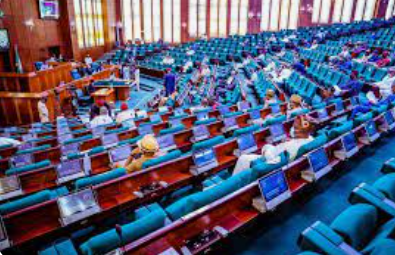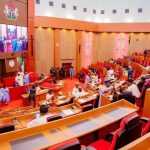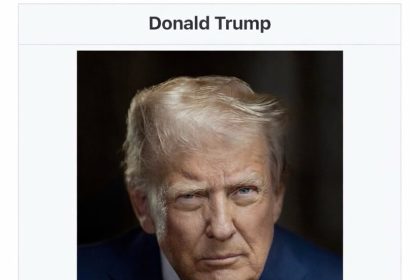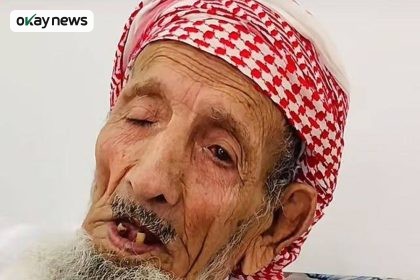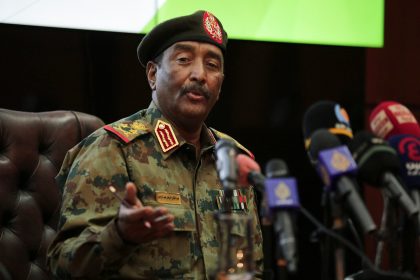The Nigerian House of Representatives has firmly rejected the recent characterization by the United States Senate describing Nigeria’s security issues as a form of “genocide against Christians.” Lawmakers insisted that such a description is misleading, emphasizing that violence in the country is not driven by religion but by a combination of complex socio-political and criminal factors.
The rejection follows a statement by U.S. Senator Riley Moore, who urged Secretary of State Marco Rubio to impose diplomatic and economic restrictions on Nigeria, alleging that Christians were being “systematically persecuted and slaughtered” across various regions of the country. Moore’s October 6 letter called for Nigeria to be redesignated as a “Country of Particular Concern (CPC)” and demanded that all arms sales to the nation be halted until the government proves its dedication to ending such violence.
In response, the Nigerian lawmakers, led by Deputy Speaker Benjamin Kalu, tabled a motion titled “Need for a Coordinated Diplomatic and Domestic Response to the Proposed Nigerian Religious Freedom Accountability Act of 2025 (U.S. Senate Bill 2747).” The motion received unanimous support on the House floor during Wednesday’s plenary session.
Kalu stated that the House “rejects outrightly narratives that frame Nigeria’s security crisis as a singularly religious conflict or a state-sponsored persecution.” He stressed that Nigeria’s Constitution guarantees “freedom of thought, conscience, and religion” while prohibiting the adoption of any state religion.
According to the Deputy Speaker, the proposed U.S. Senate Bill 2747, introduced on September 9, 2025, seeks to push the U.S. Secretary of State to label Nigeria as a Country of Particular Concern and impose sanctions under the Global Magnitsky Human Rights Accountability Act — a policy that allows Washington to penalize individuals accused of human rights abuses globally.
Kalu warned that such a move by the United States could lead to strained diplomatic ties, misrepresent Nigeria’s domestic realities, and embolden violent groups operating within the country. He added that the bill’s sponsors had relied on “incomplete or decontextualised assessments” of the situation.
“Insecurity in Nigeria is complex and multi-causal. It is driven by insurgency, criminal banditry, farmer-herder clashes, separatist agitations, and communal disputes that affect citizens of all faiths,” he said. “International reports attribute most fatalities to terrorist groups and criminal gangs, not state-backed religious persecution.”
Okay News reports that the House emphasized Nigeria’s commitment to religious tolerance and human rights protection, reiterating that both Christian and Muslim communities have been victims of violent attacks across the country.
“We condemn all forms of violence and persecution against any person or group on the basis of religion or belief and commiserate with all victims, irrespective of faith,” Kalu affirmed.
The lawmakers also restated Nigeria’s “longstanding partnership with the United States” on issues such as counterterrorism, democracy, human rights, and interfaith dialogue, but cautioned that “external legislative actions that misrepresent our situation risk undermining that partnership.”
To counter the claims and strengthen diplomatic engagement, the House directed its Committees on Foreign Affairs, National Security and Intelligence, Information, and National Orientation to collaborate with the Ministry of Foreign Affairs, the Nigerian Embassy in Washington D.C., and relevant security agencies to submit a formal protest within 21 days.
Additionally, the lawmakers urged the establishment of a Nigeria-U.S. joint fact-finding committee on religious freedom, which would include faith leaders, scholars, and independent experts. They also proposed inviting the United States Commission on International Religious Freedom (USCIRF) to a hearing before the Nigerian House.
In further action, the House directed the National Human Rights Commission, the Nigeria Police Force, and the Department of State Services (DSS) to produce, within 30 days, a consolidated report on investigations and prosecutions of religiously linked violence since 2023, to demonstrate that there is no evidence of state-sponsored persecution in the country.
The resolution, lawmakers said, will be formally transmitted to the Presidency, the Ministry of Foreign Affairs, the U.S. Congress, the State Department, the African Union (AU), and the Economic Community of West African States (ECOWAS) to ensure transparency and diplomatic balance.


